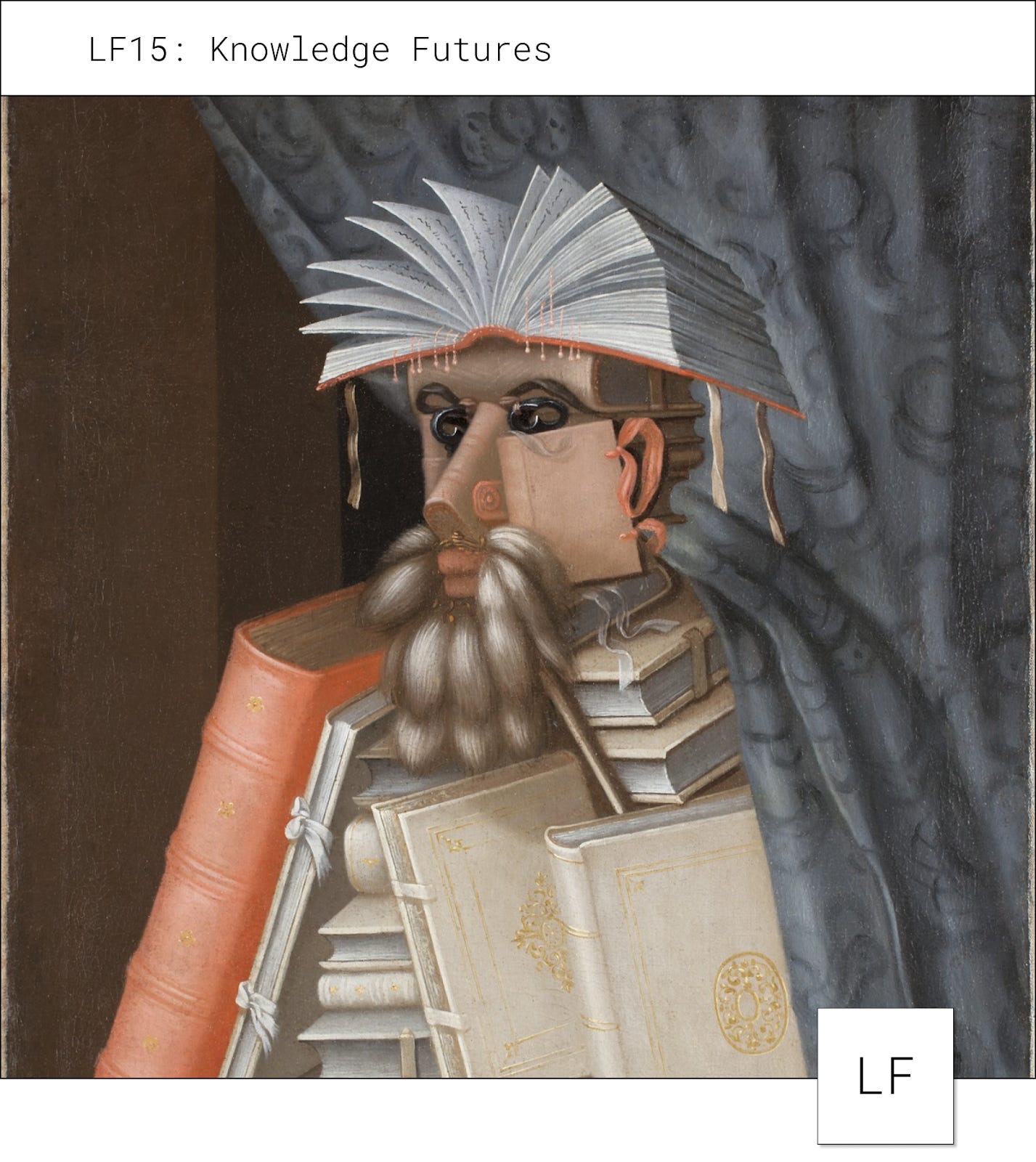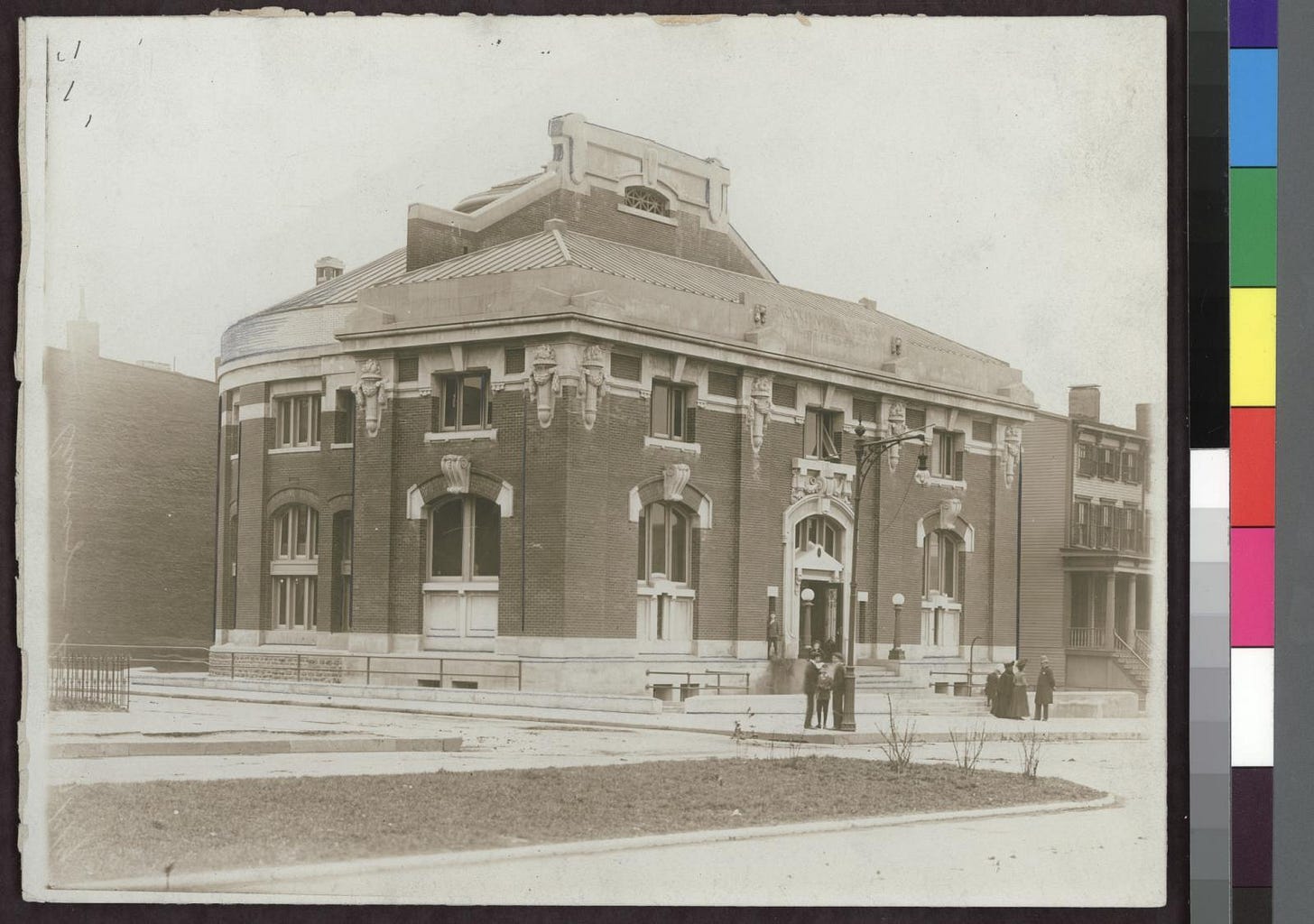Hi, Tom here. This is the third installment of Little Futures: Season 3. Last time: remembering futures. This week: knowledge futures.
“Which Pokemon do you want to be today, Dada?”
Every day this is the conversation on the walk to school with my five year old. He’s obsessed with Pokemon and walks through life clutching either vol 1 or vol 2 of the Complete Pokemon Pocket Guide (on permanent loan from the local library around the corner from where we live). Every conversation can be fact checked and cross referenced in the pocket guide. For him, the pocket guide is the jumping off point to explore the world of Pokemon - every conversation is a question, a search for knowledge. The pocket guide is the scaffolding on which he builds his personal world.
Which is the most powerfulest pokemon?
Which is stronger, Charizard vmax or Charizard vstar?
Would you rather be Flapple gx or Blastoise mega?
But of course a five year old’s appetite for knowledge is vaster than any pocket guide can sustain and he’s searching for more. His questions extend into the digital, asking our Google Home, browsing youtube, searching on my phone. And that’s how we stumbled across Mecha pokemon which opens up new questions, new searches, new worlds.
Except, of course, Mecha pokemon are not REAL Pokemon - they’re fan cards. You can buy them on Etsy because somebody made them, but you won’t find them in the Complete Pokemon Pocket Guide Vol 1 or 2…
What does a 5 year old know of who decides which Pokemon are officially documented in the Complete Pokemon Pocket Guide? What is knowledge? What truths does search surface for us? How does knowledge build our personal worlds? What are we searching for anyway?
—
“Search” of course is going through a complete re-imagination. The primary way that we learned to access knowledge as a society over the last 20 years is being burned down and rebuilt before our very eyes. No one knows where we end up yet.
Classical search is a world of rankings and relevance - where knowledge was indexed, ranked and you could search across it directly - returning a list of ranked, authoritative, links.
AI search is a different world of meaning and recommendations - where the LLMs do the searching for you and then assemble a layer of meaning on top to present you with answers directly or (in some cases) recommendations that are useful to your query.
AI search can answer orders of magnitude more types of questions than ever before, and yet it’s increasingly brokered by black boxes - corporations and algorithms that have little incentive to act in our best interest and are disintermediating our access to the underlying actual knowledge and sources. We’re entering the post-interface economy as Anne Levy writes:
The classical customer journey is dead. That linear narrative of brand approach has given way to something far more complex: a fragmented, asynchronous ecosystem of distributed touchpoints where algorithmic mediation and human perception create entirely new forms of meaning generation.
—
As I’m writing this I get an email from the Brooklyn Public Library - The complete Pokémon Pocket Guide vol. 2 is overdue. Again. I’ll renew it as soon as I send this email.
Our local library was the first Carnegie Branch to open to the public in Brooklyn, on October 8th, 1904:
“A library outranks any other one thing a community can do to benefit its people. It is a never failing spring in the desert.” ― Andrew Carnegie
Andrew Carnegie was the godfather of modern libraries - between 1883 and 1929 he bankrolled the proliferation of public libraries with a total of 2,509 Carnegie libraries built, not just in the US but in the UK too. My local library growing up in the North of England was a Carnegie library and now my kids library in Brooklyn is a Carnegie library too.
It strikes me that libraries and data centers are both cathedrals of knowledge. Imposing physical structures that lay the foundations for society’s access to knowledge but in radically different ways.
Of course libraries aren’t just about knowledge, they’re “lakes of mental energy”:
“Libraries are reservoirs of strength, grace and wit, reminders of order, calm and continuity, lakes of mental energy, neither warm nor cold, light nor dark ... In any library in the world, I am at home, unselfconscious, still and absorbed." - Germaine Greer
And LLMs aren’t just about knowledge, they’re engines of longing (bolding mine):
“We propose that the currency at the heart of the AI industry is longing, rather than knowledge. When we interface with LLMs and ask chatbots a question, it does not actually matter what is on the other side. It is the mere gesture of building the bridge to get there that does: the telos of all AI and technological expansion is to resolve all gaps introduced by the finitude of human experience.”
—
Take a deep breath, imagine the library from your childhood. Remember the smell. Breathe in deeply. Exhale. Now, picture the future of knowledge. Imagine the smell. Breathe in deeply. Exhale.
This week’s links - libraries and knowledge:
Start with this lovely illustrated history of libraries from Ariel Berger:
I like this idea of the efficient librarian - certainly I’ve been reading more academic papers and applying them to my day job since using LLMs (you too?)
An Efficient Librarian is an elite knowledge worker navigating the complexity of the post-Internet information world. The Efficient Librarian combines the skill sets of a librarian with the best productivity and efficiency practices to become a powerful consultant and decision-maker. He or she masters the ability to traverse the streams of information flowing throughout our increasingly digital world and then in turn helps others learn these skills.
Speaking of academic papers, I enjoyed this one Digital Libraries of the future (from 2006!). In particular the idea that users are not only consumers but producers of information::
New DLs are also required to offer a much richer set of services to their users than in the past. In particular, they must support the activities of their users by providing functionalities that may range from general utilities, like annotation, summarization or co-operative work support, to very audience-specific functions, like map processing, semantic analysis of images, or simulation. The availability of this new DL functionality can, in principle, change the way in which research is conducted. By exploiting such types of DL, for example, a scientist can annotate the article of a colleague with a programme that extracts useful information from a large amount of data collected by a specific scientific observatory. This programme, executed on demand when the annotation is accessed, can complement the content of the paper with continuously refreshed information.
In the new DLs users are not only consumers but also producers of information. By elaborating information gathered through the DL they can create new information objects that are published in the DL, thus enriching its content. The new DLs are thus required to offer services that support the authoring of these new objects and the workflows that lead to their publication.
Finally, Libraries as infrastructure - but this quote could as easily apply to LLMs…..
We need to develop — both among library patrons and librarians themselves — new critical capacities to understand the distributed physical, technical and social architectures that scaffold our institutions of knowledge and program our values. And we must consider where those infrastructures intersect — where they should be, and perhaps aren’t, mutually reinforcing one another. When do our social obligations compromise our intellectual aspirations, or vice versa? And when do those social or intellectual aspirations for the library exceed — or fail to fully exploit — the capacities of our architectural and technological infrastructures? Ultimately, we need to ensure that we have a strong epistemological framework — a narrative that explains how the library promotes learning and stewards knowledge — so that everything hangs together, so there’s some institutional coherence. We need to sync the library’s intersecting infrastructures so that they work together to support our shared intellectual and ethical goals.
Today's artwork: The Librarian by Giuseppe Arcimboldo from 1566 Before the Big Futures, endless little futures.
Much love, Tom








Thank you! I feel flattered that you mention my work!